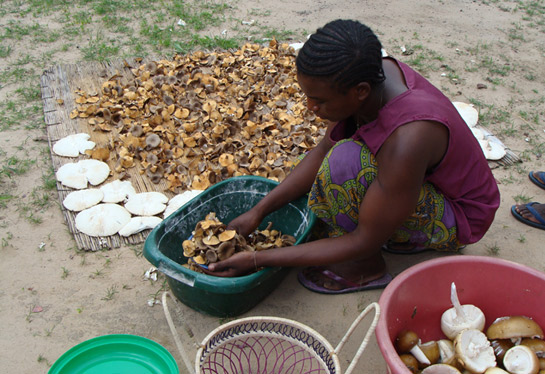- Bringing logging companies in line with FSC certification standards in the Congo Basin
- Building knowledge about climate change adaptation in Congo Basin
- New 10-year research initiative to protect forests and reduce risks for forest communities
- Bioenergy, sustainability and trade-offs
- Landmark findings show mangroves key to fighting climate change
- Rural poor rely on forests for nearly a quarter of household income
- Integrating the management of timber and non-timber forest products in the Amazon
- Reviving frankincense and myrrh for livelihoods and conservation in Ethiopia
- Urgent call for action at Forest Day 5
- Shining a spotlight on Indonesia’s forests
- Pathways to impact

Rural poor rely on forests for nearly a quarter of household income
A 7 year global landmark study by CIFOR found that income from forests contributes on average more than one-fifth of total household earnings for people living in or near forests – documenting for the first time on such a scale the key role that the environment plays in poverty alleviation.
The size of ‘environmental incomes’ – from wood, game, plants and other resources harvested from the wild – has until now been poorly documented, and is not obvious to most policy makers. Many existing tools for assessing poverty and income, such as the World Bank’s Living Standard Measurement Survey, fail to adequately capture income from natural resources. The true value of forests in the livelihoods of the world’s rural poor remains largely invisible.
"Studies have emphasised the special importance of forest incomes to the poorest households. One surprising finding is that ... forest reliance ... apparently varies little with income levels. Hence, forest income is not just for the poor but for everyone ..."
Arild Angelsen
PEN coordinator and CIFOR Senior Associate
The Poverty and Environment Network (PEN) study comprises data collected by 32 partners, mostly PhD students who spent a year or more in the field, from more than 8,000 households at 58 sites in 24 countries.
Among those surveyed, forest income – on average – constitutes more than one-fifth of total household income, while environmental income (forest and non-forest) makes up more than a quarter. These numbers from the study’s global database were presented in June 2011 at a conference at the Royal Society in London.
‘Earlier studies have emphasised the special importance of forest incomes to the poorest households. One surprising finding of this project is that, overall, forest reliance, defined as the share of forest income in total household income, apparently varies little with income levels. Hence, forest income is not just for the poor but for everyone at these sites,’ said Arild Angelsen, PEN coordinator and CIFOR Senior Associate.
